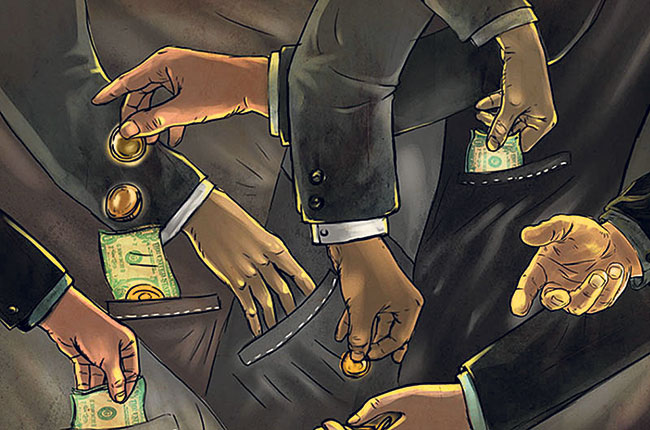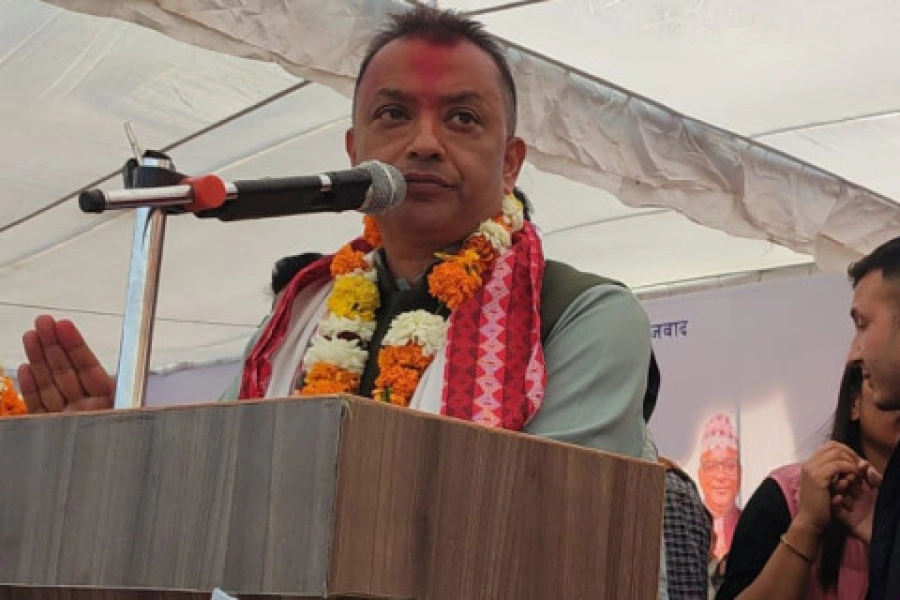Dear Bishal Thapa, thank you for your open letter (Open letter to US envoy, Oct 4).
I truly enjoy engaging in dialogue with Nepalis who are passionate about issues like fighting corruption and discussing where we can work together to increase accountability and transparency.
As a part of this conversation, I wanted to take a moment to clarify how US government foreign aid programs function, and how the US is partnering at different levels to ensure that the assistance that we provide promotes transparency—and will increase Nepal’s democratic development.
Most US government development assistance is programmed through different partner organizations, most of which are not part of the government and all of whom go through a rigorous, competitive and transparent selection process. When we provide assistance, we employ established safeguards to ensure fiscal accountability and maximize the value of each dollar spent.
Under fire over expressway consultancy process, Army changes le...

We also carefully select performance measures, such as the number of vaccinations to administer or the number of farmers to teach new cultivation techniques, and regularly monitor and evaluate the performance of each project to make sure they achieve their program goals.
 When we directly provide development support to Government of Nepal agencies, funds are only disbursed upon satisfactory completion of mutually determined activities. Also, these activities are subject to rigorous annual audits. The US government currently has agreements in place for direct funding only with the Ministries of Health and Education. Each year we work closely with the ministries to develop the work plans that determine how our funds are used.
When we directly provide development support to Government of Nepal agencies, funds are only disbursed upon satisfactory completion of mutually determined activities. Also, these activities are subject to rigorous annual audits. The US government currently has agreements in place for direct funding only with the Ministries of Health and Education. Each year we work closely with the ministries to develop the work plans that determine how our funds are used.
To deepen this engagement and increase fiscal accountability in Nepal, USAID is implementing a five-year Public Financial Management Strengthening project. That project is solely dedicated to assisting Government of Nepal ministries and agencies to establish systems and safeguards that better assure transparent utilization of not only US taxpayer money but also other resources. This project is helping address many of the corruption issues you raised in your letter.
As I mentioned in my op-ed last month, the single most effective ingredient for ensuring the success of transparency and anti-corruption initiatives is the joining of hands between a nation’s government and its civil society to broaden the number and types of local entities engaged in development. In support of this, we are working with non-governmental organizations to help increase their capacity to become eligible for and implement development projects, thereby fostering private-public partnerships.
The MCC Compact signed between the US Government and the Government of Nepal is the first in South Asia. The MCC’s competitive selection process is a data-driven, transparent method for determining where the agency invests its development dollars based on the performance of countries in the economic and governance realms.
The $500 million MCC compact will spur economic growth and reduce poverty in Nepal. MCC runs a business model that ensures expectations are met on budget and in specified time periods and through open, competitive procurements. During the MCC’s five-year timeline for operation here, Nepal’s performance in various indicators—particularly in terms of action against corruption—will be closely monitored and measured and could impact continuance of the compact if indicators drop.
The US government is also funding the University of Maryland to perform a needs assessment on local governance in Nepal and, based on that, to create a massive open online course (MOOC) on local governance for elected officials here. In this process they will provide technical advisory sessions to local lawmakers on topics such as providing municipal services, budgeting, communicating with local constituents, the role of local government in democracy, and holding public meetings—all key aspects to ensuring accountability and transparency at the local level.
Again, I would like to thank you for your letter and the opportunity to clarify some of the misconceptions about how US assistance is delivered. The US stands ready to play its role, as friend and partner, in helping to create a stable, democratic, and prosperous Nepal for everyone, especially for those unsung heroes, who are fighting corruption in big and small ways, in Nepal, every day.
Alaina Teplitz
US Ambassador to Nepal





































